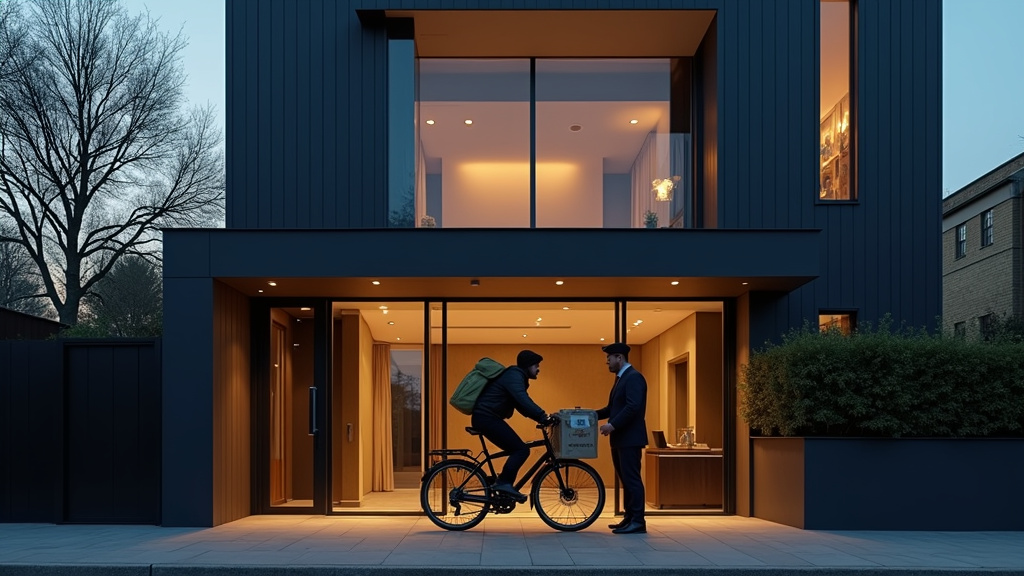A high-end residential complex in East London has implemented a ban on food delivery riders entering its premises, citing security concerns and allegations of undocumented workers among the courier ranks. The decision by Canary Riverside, a luxury apartment complex, has sparked debate about discrimination and the realities faced by gig economy workers in the capital.
Security Concerns Prompt Ban
The property management firm for Canary Riverside, Parkgate Aspen, stated that the ban was enacted following press reports suggesting that some food delivery couriers operating in the area may be undocumented. The firm indicated that these concerns led residents to request heightened security measures. According to Parkgate Aspen, the stance is that individuals who are not documented “cannot be allowed to roam” the private estate, implying a direct link between residency status and access to the development.
The decision appears to have been influenced by recent events, with the ban reportedly being prompted by protests that took place outside a nearby hotel accommodating asylum seekers. This context has led some to question whether the move is a genuine security measure or a reaction to broader societal anxieties.
Delivery Platforms Deny Allegations
Major food delivery platforms, including Deliveroo, Just Eat, and Uber Eats, have publicly refuted the claims that their workforces are predominantly composed of undocumented individuals. Representatives from these companies emphasized their robust policies designed to prevent illegal working. They highlighted the technological solutions and verification processes they employ to vet their riders, asserting that these measures are in place to ensure compliance with employment laws and immigration regulations.
Despite these assurances from the delivery giants, the ban at Canary Riverside remains in effect, raising questions about the thoroughness of their verification systems or the interpretation of ‘undocumented’ by the property management.
Resident Backlash and Discrimination Claims
The move by Canary Riverside has not been met with universal approval among its residents. A notable segment of the community has voiced criticism, characterizing the ban as discriminatory. These residents argue that it unfairly targets an entire group of workers based on unsubstantiated or generalized claims. They contend that singling out food delivery riders for exclusion, rather than addressing individuals on a case-by-case basis, is a broad-brush approach that could alienate and stigmatize legitimate workers.
The story has quickly become a trending topic across social media platforms in London, with many sharing their views on the ban. This news coverage has brought the issue of worker rights and residential access to the forefront of public discussion, making it a significant piece of London news.
Broader Implications for Gig Economy
This incident at Canary Riverside brings to light broader challenges and debates surrounding the gig economy and the status of its workers. As delivery services become increasingly integral to urban life, such disputes over access and legality highlight potential friction points between residents, property management, and the platforms themselves. The emphasis on ‘undocumented’ status also touches upon sensitive immigration issues, intertwining them with the daily operations of essential delivery services. The story serves as a cover for a larger conversation about worker verification, security protocols in residential buildings, and the potential for prejudice in the application of such rules. It is a top story for many news outlets covering the capital.
The long-term impact of such bans on the availability of delivery services and the livelihoods of riders remains to be seen. However, the situation at Canary Riverside is likely to fuel further scrutiny of policies that affect a significant segment of the urban workforce.





